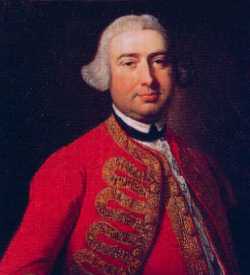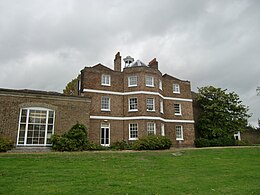John Beard (tenor)

John Beard (c. 1716 – 5 February 1791)
Beard's date of birth and parentage are uncertain. voice.
In 1762, Beard created roles in the world premieres of two of Thomas Arne's operas: Farmer Hawthorn in Love in a Village, and Artabanes in Artaxerxes. [2] Charles Burney commented that he "constantly possessed the favour of the public by his superior conduct, knowledge of Music, and intelligence as an actor." Burney's article in Rees's Cyclopædia noted that Beard, "an energetic English singer, and an excellent actor, was brought up in the king's chapel. He knew as much of music as was necessary to sing a single part at sight, and with a voice that was more powerful than sweet, he became the most useful and favourite singer of his time, on the stage, at Ranelagh, at all concerts; and in Handel's oratorios he had always a capital part, being by his knowledge of music the most steady support of the choruses, not only of Handel, but in the odes of Greene and Boyce".[3]
Following the defeat of the government army at the
In 1743, Beard became a member of the
His marriage, in January 1739, to the widow Lady Henrietta Herbert, only daughter of
1767 was also the year when increasing deafness forced Beard to retire. He had been appointed 'Vocal performer in extraordinary' by George III in 1764,[2] and the salary of £100 p.a. allowed him to live comfortably in retirement at Hampton, where he died in 1791.
References
- ^ Halliwell, Victoria: "Beard, John (1716/17-1791)", Oxford Dictionary of National Biography, eds. H C G Matthew and Brian Harrison (Oxford, OUP, 2004), vol. 4, pp. 534-36.
- ^ a b c d e f g h i Jenkins, Neil: John Beard - Handel and Garrick's Favourite Tenor (Bramber: Bramber Press, 2012).
- ^ Rees, Abraham: The Encyclopædia; or Universal Dictionary of Arts, Sciences, and Literature (London: Longman, Hurst, Rees, Orme & Brown, 1820), vol. IV, p. 277.
Bibliography
- HANDEL & JOHN BEARD (Paper given to the 2005 Handel Symposium)
- Jenkins, Neil: John Beard - Handel and Garrick's Favourite Tenor (Bramber: Bramber Press, 2012).
- Dean, Winton (2001). "Beard, John". In ISBN 978-1-56159-239-5.


